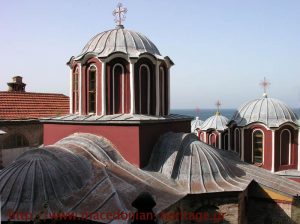Abot Silouan on Repentance
During Great Lent of [2020], when all the Orthodox were focused on repentance, covid-19 became pandemic in America. The tenor of our community’s customary Lenten solitude was uniquely colored by the liturgical addition of The Prayers in Time of Plague. Far from individualistic, these prayers are the cry of a repentant people, thereby accenting for us the hypostatic nature of repentance. Having reached the joy of Bright Week, however, when repentance is transfigured in the light of resurrection- al life, we left off these penitential prayers for a time. Wondering when or whether we should resume, we took pause. The reality was that the clear preaching of repentance was not being heard in the Church. Rather, humanistic palliatives took the pulpit, as the faithful were told to put their hope in local government directives. Our hearts were torn: if repentance is not being sought out, is it not disingenuous to pray as if it were?
Without a doubt, we feel compassion for those afflicted and dying as a result of the pandemic, for which cause we desire to see it come to an end, and quickly. And yet, those whose lives are informed by the Scriptures cannot help but wonder—where is the universal call to repentance? Where is the prophetic voice challenging us to look at ourselves mercilessly and ruthlessly so as to scour out what is not of God? Would it not behoove us to continue in affliction until fitting repentance is manifested? For our loving Father will not leave His children to stray down the dangerous and prodigal paths of modern deviance without calling them to the road of return. Forgetfulness that life in the Church is all about repentance is a more pernicious pandemic than any coronavirus. We must not mask this forgetfulness with false self-assurance in the facile following of “every governmental mandate”. God is ever calling His people unto the healing balm of repentance in humility. Through pride, resisting this call, we long for things to ‘just get back to normal.’
Yet, true repentance, one that is hypostatic, ennobles our sense of normality. ‘Normal’ is for all to return to Paradise, to the unfallen state of Adam. And in the garden of the Church, Christ offers the Grace for us to walk in the light of His Face together with all Adam. We weep because many have strayed from this narrow path of Christ. This pandemic is a blessing and wonderful opportunity to learn hypostatic repentance.
– Monastery Newsletter of Monastery of the Archangel Michael
